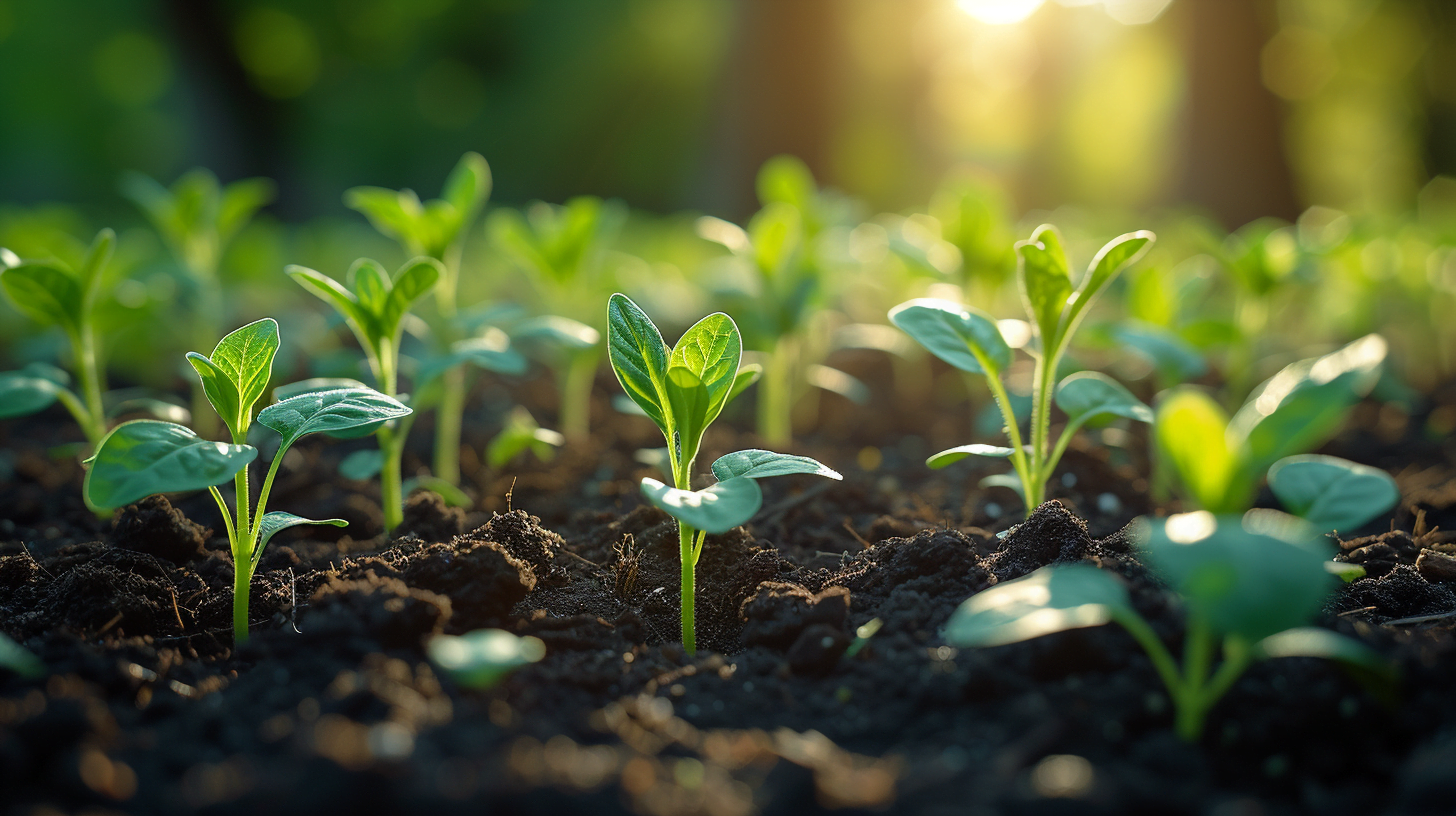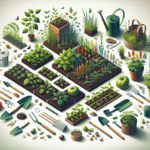Overview of Organic Growing
Organic growing involves practices such as crop rotation, composting, and the use of natural pest control methods to maintain soil fertility and manage pests and diseases. It prioritizes the use of organic matter, such as compost and manure, to improve soil structure and provide essential nutrients to plants. Additionally, organic growing emphasizes the importance of promoting beneficial insects and microorganisms to support plant health.
Benefits of Organic Growing for Plants
Organic growing offers numerous benefits for plants, including improved nutrient uptake, enhanced resistance to pests and diseases, and better overall health and vitality. By avoiding the use of synthetic chemicals, plants are able to develop stronger root systems and natural defense mechanisms, leading to higher quality and more nutritious produce. Furthermore, organic growing contributes to the long-term sustainability of agricultural systems and helps preserve the natural environment for future generations.
Soil health is crucial for the successful growth of plants. Healthy soil provides the necessary nutrients and support for plants to thrive. There are various methods for improving soil fertility organically, which are essential for sustainable plant growth. Composting plays a significant role in providing essential nutrients to the soil, thereby contributing to plant nutrition.
Importance of soil health for plant growth
Soil health is a critical factor that directly impacts the growth and development of plants. It provides the necessary nutrients, water, and support for plant roots. Healthy soil also promotes beneficial microbial activity, which aids in nutrient uptake by plants. By focusing on soil health, gardeners can ensure that their plants have the best possible environment for growth.
Methods for improving soil fertility organically
There are several organic methods for enhancing soil fertility, including cover cropping, crop rotation, and the use of organic amendments such as compost and manure. These methods help to maintain soil structure, improve nutrient availability, and support a diverse soil ecosystem, all of which contribute to healthy plant growth.
Composting and its role in plant nutrition
Composting is a valuable practice that enriches the soil with organic matter and essential nutrients. It promotes the growth of beneficial microorganisms and improves soil structure, thus enhancing its ability to support plant growth. By incorporating compost into the soil, gardeners can ensure that their plants receive a steady supply of nutrients for optimal nutrition and overall health.
When it comes to organic plant growing, the right planting techniques can make all the difference in the success of your garden. Here are some key aspects to consider:
Choosing the right plants for your garden
Before you start planting, it’s important to choose the right plants for your garden. Consider factors such as your local climate, soil type, and available sunlight. Selecting plants that are well-suited to your specific growing conditions will set the stage for a thriving garden.
Seeding and transplanting methods for different types of plants
Once you’ve selected the plants for your garden, it’s essential to understand the best seeding and transplanting methods for each type of plant. Some plants may thrive when directly seeded into the soil, while others may require starting indoors and then transplanting. Understanding the specific needs of each plant will help ensure successful growth.
Tips for successful germination and growth
Germination and growth are critical stages in the plant’s life cycle. To promote successful germination and growth, it’s important to provide the right environmental conditions, such as adequate moisture, proper temperature, and sufficient nutrients. Additionally, paying attention to proper spacing, weed control, and pest management can contribute to the overall success of your organic plant growing endeavors.
When it comes to maintaining organic plants, there are several key aspects to consider in order to ensure their health and productivity. These include watering and irrigation strategies, weed management techniques, and controlling pests and diseases using organic methods.
Watering and Irrigation Strategies for Plant Health
Proper watering and irrigation are crucial for the health of organic plants. It is important to provide plants with the right amount of water at the right time to promote healthy growth and prevent water-related issues such as root rot. Using techniques such as drip irrigation and mulching can help conserve water and ensure that plants receive adequate moisture.
Weed Management Techniques Without Chemicals
Keeping weeds at bay is essential for organic plant growth. Instead of relying on chemical herbicides, organic growers can employ techniques such as mulching, hand weeding, and using cover crops to suppress weed growth. These methods help to maintain a healthy growing environment without the use of harmful chemicals.
Controlling Pests and Diseases Using Organic Methods
Organic growers can effectively manage pests and diseases without resorting to synthetic pesticides. This can be achieved through practices such as crop rotation, companion planting, and the use of natural predators. Additionally, maintaining healthy soil and promoting biodiversity can help build plant resilience against pests and diseases.
When it comes to harvesting plants in organic plant growing, there are best practices that can help maximize yield and quality. It is important to harvest at the right time, when the plants are at their peak ripeness. This ensures the best flavor and nutritional content. Additionally, using sharp, clean tools for harvesting can help minimize damage to the plants and ensure a longer shelf life for the produce.
Proper storage methods are essential for preserving the freshness of harvested produce. After harvesting, it is important to handle the plants with care to avoid bruising or damage. Storing produce in a cool, dark, and well-ventilated area can help prolong its shelf life. Using appropriate containers, such as breathable bags or containers with ventilation, can also help prevent moisture buildup and extend the freshness of the produce.
One important aspect of organic plant growing is season extension, which involves techniques for prolonging the growing season for plants. This can be achieved through the use of protective structures such as greenhouses and cold frames. These structures help to create a controlled environment that shields plants from harsh weather conditions and extends their growing period. By utilizing these protective structures, organic growers can effectively manage temperature, humidity, and light exposure to support plant growth beyond the typical outdoor growing season.
When it comes to marketing and selling organic produce, there are a few tips to keep in mind. First and foremost, it’s important to highlight the benefits of organic products, such as their lack of harmful chemicals and pesticides. This can be done through clear labeling and signage at farmers’ markets or local stores.
Additionally, building relationships with customers and local markets is crucial for success. This can be achieved by engaging with customers, providing information about the growing process, and offering samples to showcase the quality of the produce. By fostering these relationships, organic growers can create a loyal customer base and establish a strong presence in the local market.




